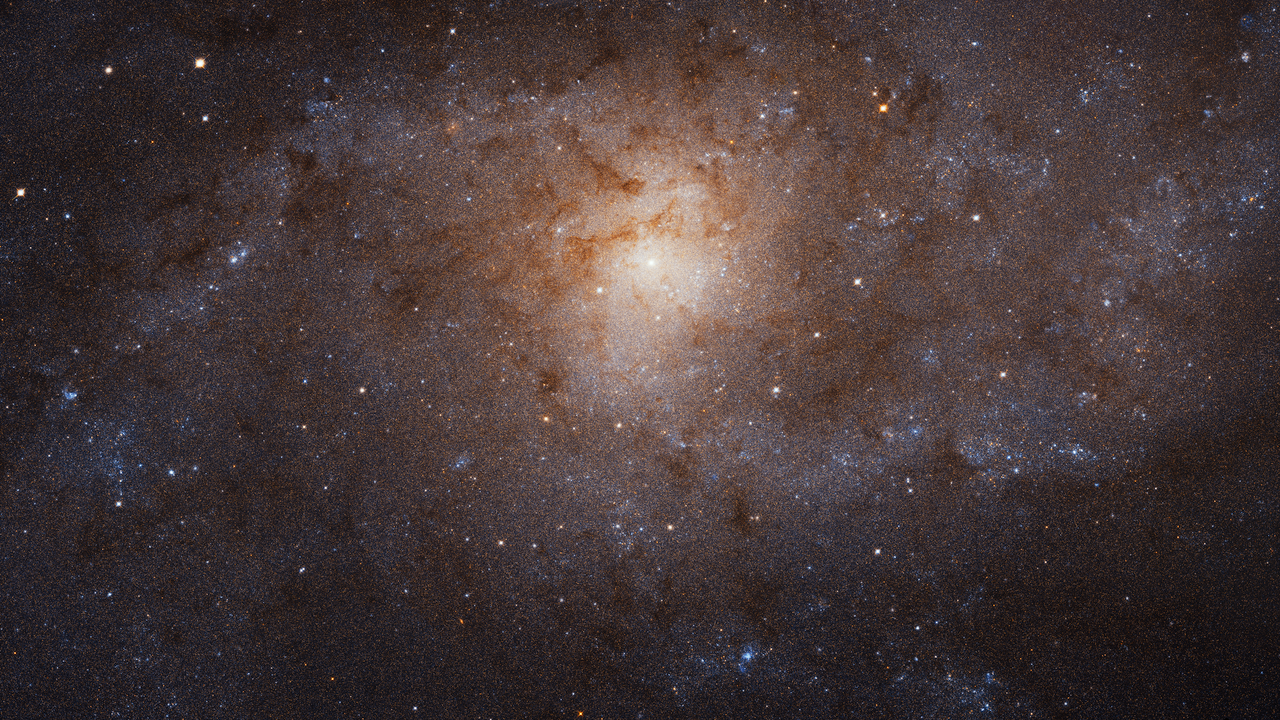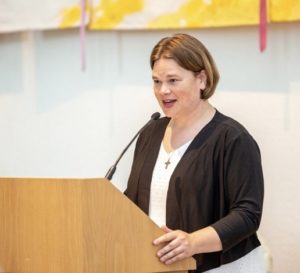
“Wait, so this research project that you are working on this year is about…cosmetology?”
More than one person has said something along these lines when I explain that I’m assisting with cosmology research. I clarify that I am not going to beauty school, but rather I’m engaging in study of the cosmos – which usually gets a laugh and raises more questions!
What is the cosmos and cosmology, anyway? More importantly, why is it something that Catholic Sisters are seeking to deep dive into through study?
Cosmology is the study of the origins and development of the universe, and it is distinct from but connected to theology, or “God-talk.” Franciscan Sister Ilia Delio – one of many thinkers developing work around “the New Cosmology” which builds on the work of 20th century paleontologist and Jesuit priest Teilhard de Chardin – argues that theology of any kind is undergirded by cosmology.
Obviously, what scientists in various fields have learned challenges the cosmology held by the human authors of Scripture who envisioned a three-tiered world with a flat earth, the heavens above the clouds, and an underworld below. This need not create a crisis of faith for Catholics given that our approach to Scripture is not a simple literalist reading of the text. The Vatican II document on the Church in the Modern World, Gaudium et Spes, cautions us against the idea “that faith and science are mutually opposed.”
Pope Francis expanded on this idea in his 2014 address at the Pontifical Academy of Sciences.
“When we read the account of Creation in Genesis we risk imagining that God was a magician, complete with an all powerful magic wand. But that was not so. He created beings and he let them develop according to the internal laws with which He endowed each one, that they might develop, and reach their fullness. He gave autonomy to the beings of the universe at the same time in which He assured them of his continual presence, giving life to every reality. And thus Creation has been progressing for centuries and centuries, millennia and millennia, until becoming as we know it today, precisely because God is not a demiurge or a magician, but the Creator who gives life to all beings. The beginning of the world was not a work of chaos that owes its origin to another, but derives directly from a supreme Principle who creates out of love. The Big Bang theory which is proposed today as the origin of the world, does not contradict the intervention of a divine creator but depends on it. Evolution in nature does not conflict with the notion of Creation, because evolution presupposes the creation of beings who evolve.”
For those of us seeking to hold both the integrity of our Catholic faith as well as insights articulated by physicists, astronomers, geologists, paleontologists, and other scientists, it seems reasonable to conclude, as Pope Francis does, that God chooses to create through evolution. The universe is still aborning, says John Haught. Creation is not over and done, but rather God continually sings the universe into being, says Elizabeth Johnson.
The knowledge we are gaining from astronomy, astrobiology, astrophysics, quantum mechanics and other related fields is new, yet the Catholic commitment to dialogue between science and faith is not at all new. The “father of Big Bang,” Georges Lemaître, was a Jesuit priest, as was Angelo Secchi, considered the founder of astrophysics. In medieval universities, students were expected to study astronomy before studying theology and philosophy – the realms of study were not seen as inherently in tension or contradictory. The division between what we would call “science” today and what was called “natural philosophy” in past centuries only hardened during and after the Enlightenment and the development of the scientific method.
The Vatican Observatory was created in 1891 by Pope Leo XIII as a bridge between the worlds of faith and science to show that “the Church and her Pastors are not opposed to true and solid science, whether human or divine, but that they embrace it, encourage it, and promote it with the fullest possible dedication.”
All of this has implications for the way that we do theology, read and pray with Scripture, and, by extension, the way we think about the context of vowed Religious life in the 21st century. This is particularly true for those of us who carry the Dominican charism of seeking truth – veritas – through assiduous study and prayer.
This is why two Dominican Sisters are deep diving into questions of cosmology (not cosmetology!) and thinking out loud on this blog to invite you to join with us on the journey.

A note to commentators from Sr Laurie Brink, OP: I am a Catholic Christian scholar for whom the Gospel directs not only my teaching, but my actions and hopefully my speech. I look forward to your insights, and I ask that in the spirit of Christian charity and courteous discourse you write with love and civility. Hateful or vitriolic speak has no place in thoughtful dialogue.
“Let no evil talk come out of your mouths, but only what is useful for building up, as there is need, so that your words may give grace to those who hear” (Eph 4:29).